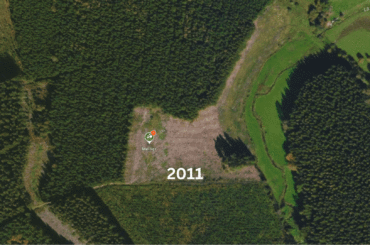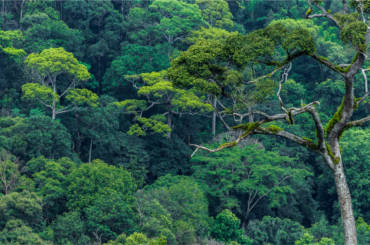How are elephants, bison, whales, and invertebrates relevant to solving the climate crisis?
New evidence is showing us that we can supercharge climate change mitigation by restoring wildlife populations to significant, near historic levels. Focusing on renewable energy, consumption, halting deforestation, and planting trees is important, but it won’t be enough. So, what could we do? We could animate the carbon cycle through rewilding! Restoring and conserving key species such as bison and beavers not only improves ecological functioning but can also magnify carbon uptake by 1.5 to 12.5 times across the world’s terrestrial, freshwater and marine ecosystems. The effects of wildlife can be significant. Due to the restoration of healthy wildebeest populations in the Serengeti, the ecosystem now takes up between 1- 8 million tons (or 0.001 – 0.008 Gigatons, Gt) of carbon annually.
.. but can also magnify carbon uptake by 1.5 to 12.5 times across the world’s terrestrial, freshwater and marine ecosystems.
Animals influence the carbon cycle in many ways. Here are some examples (Photo credits: The Global Rewilding Alliance):

Herbivores such as elephants and bison affect the exchange of carbon between ecosystems and the atmosphere by grazing, redistributing seeds and nutrients, and compacting soils and sediments by trampling. They increase carbon retention and the amount of carbon drawn down in plants and soils. This minimizes wildfires and permafrost thawing.

Carnivores in forests (e.g., wolves) and seagrass meadows (e.g., sharks), keep terrestrial and marine herbivore populations in check, thus influencing the ability of ecosystems to absorb carbon (which can be negatively affected by too much grazing).

Whales and fish act as nutrient translocators, consuming prey in deep water and excreting nutrients at the surface, which stimulates the production of phytoplankton. Phytoplankton then pulls CO2 into the water column.
“The potential benefit of wildlife and recreating functional nature – rewilding – in solving the climate crisis is simply huge”, says Karl Wagner, co-director of the Global Rewilding Alliance and co-organizer of World Rewilding Day. “Healthy animal populations are the missing link between biodiversity and climate crisis”.
“Healthy animal populations are the missing link between biodiversity and climate crisis”.
Karl Wagner, Co-Director of Global Rewilding Alliance
Wildlife has been completely disregarded in climate change strategies and carbon accounting. The Global Rewilding Alliance, of which OpenForests is a proud member, is working to change this. The alliance just released engaging content on the topic, such as the Animating the Carbon Cycle booklet and film.







